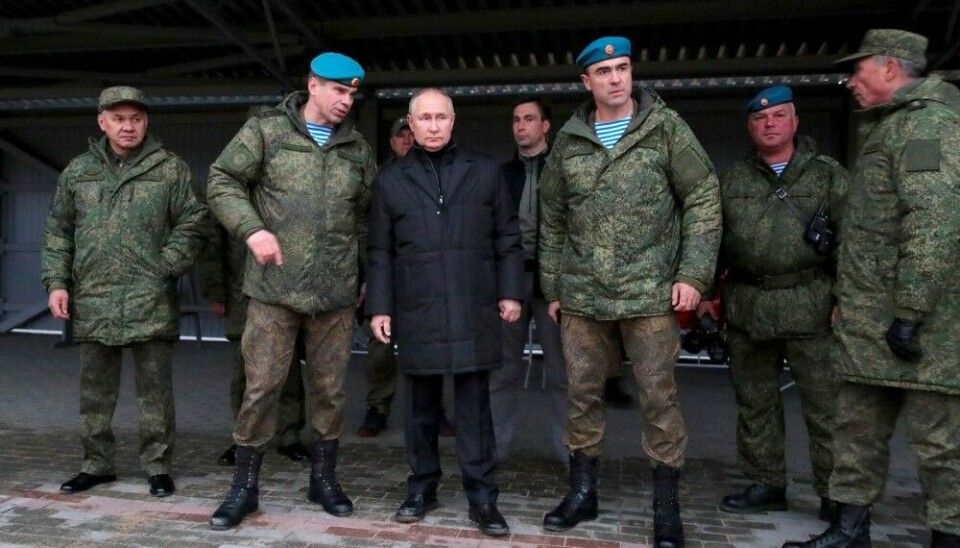
Amid bloody onslaught on Ukraine, Putin is reminded about a Western intervention in Northern Russia
"I see certain similarity with the current situation," Arkhangelsk Governor Aleksandr Tsybulsky told Vladimir Putin as he outlined how British-led forces killed thousands of Russians and encroached on national sovereignty during the intervention in the White Sea region in 1918-1919.
The meeting between Putin and Governor Tsybulsky took place during the president’s visit to the north Russian town of Oktyabrsky. According to the Kremlin, Putin travelled to the remote town in a bid to support the Russian forestry industry and its efforts to overcome Western sanctions.
Putin came to the North as his army was suffering catastrophic losses along the frontlines in Ukraine. According to the British Defense Ministry, an average of 824 Russian soldiers were killed every day during the first week of February. The number is over four times higher than the daily average in June and July 2022.
Losses are dramatic also among soldiers from Arkhangelsk. The Barents Observer found more than 30 soldiers from the region killed over a period of few weeks. But Governor Tsybulsky still insists that his troops are doing fine. The soldiers that serve in the Arkhangelsk Battalion, a unit under the Northern Fleet’s 200th Motorised Rifle Brigade, have “executed all tasks and not surrendered a single position,” he told Putin.
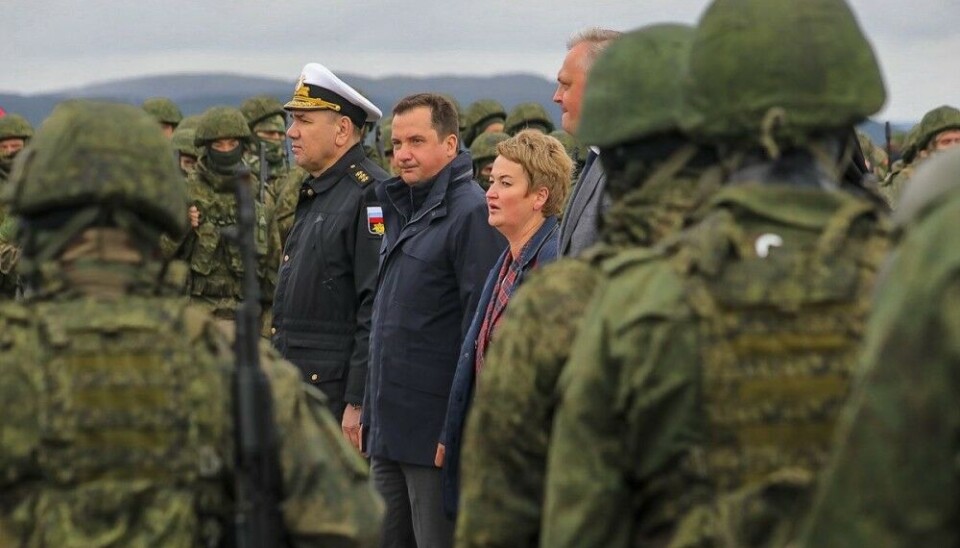
As a matter of fact, Arkhangelsk has itself experienced war with forces backed by the West, Tsybulsky explained. According to the governor, today’s war with Ukraine bears resemblance with the North Russia intervention of 1918-19.
“The way I see it, there are certain resemblance with today, because back then intervention forces on the initiative of Great Britain together with the USA, Finns, Poles and even New Zealand and Australia came to the North with honourable intentions — to protect Russians against something that appeared to them as horrible,”he said.
“But nevertheless, it ended with a coup and take-over of power,” he added.
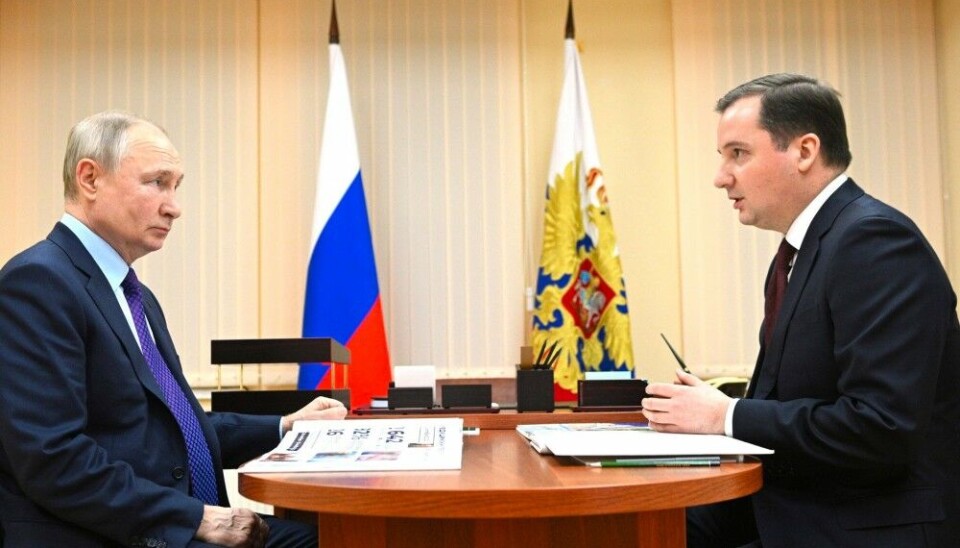
According to Tsybulsky, the British and allied forces that in August 1918 took control over Arkhangelsk established a cruel and repressive regime and even built “the first concentration camp in Russia.”
“The ones that expressed dissatisfaction or disagreement with the interventionists […] were either shot or sent to the concentration camp,” he said and explained that the foreign forces took control over the region’s fisheries and forest industry, and that locals were living like in a colony.
He especially highlighted the significance of the bloody battle at Yurevsky rubezh, where reportedly about 1300 Russian Red Army soldiers were killed. The British also applied chemical weapons, the governor explained.
“More than 50,000 rounds of chemical devices were brought to the region and applied against our people. But our northern weather conditions played a dirty trick with them, and at one moment the wind direction suddenly changed and the chemical substances headed against themselves and in that sense also they suffered.”
But the Russian defenders in the end stopped the interventionists and prevented their further incursion into the country, Tsybulsky told Putin.
The intervention of the British, Americans and other allied forces will now be devoted more attention in Arkhangelsk. According to Tsybulsky, two centres of so-called historical patriotic tourism will be built to help raise awareness of the historical events.
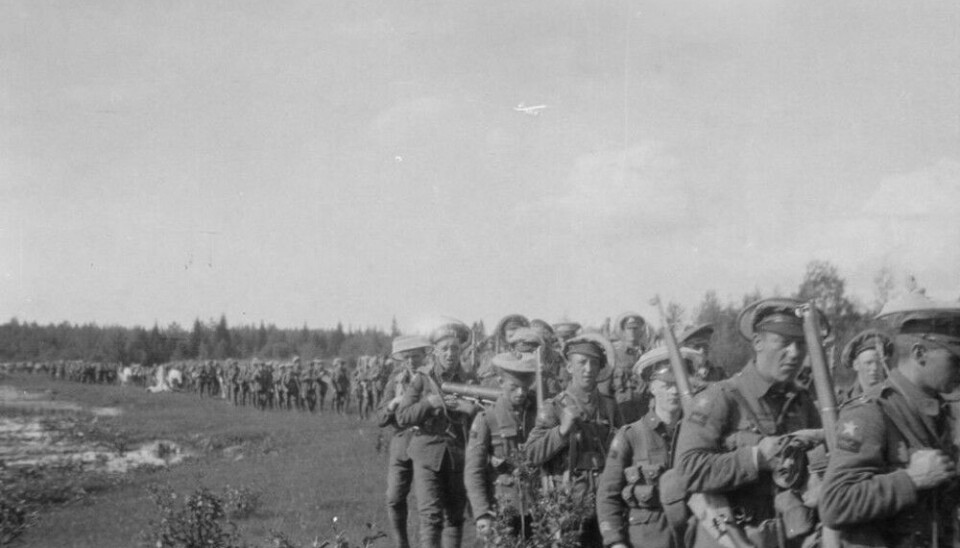
Tsybulsky’s recollection of the situation in 1918 suits well with Putin’s narrative about the war against Ukraine. Despite his forces’ massive destruction of Ukrainian lands, war crimes and killings, Putin argues that Russia is only defending itself against Western aggression and that the Ukrainians and their western allies are to blame.
According to Kari Aga Myklebost, Professor in History at the University of Tromsø, Norway, the allied intervention in Arkhangelsk is now increasingly used in Russian memory policy.
“If the Great Patriotic War has been a cornerstone of the Kremlin’s memory policy during the last decade, then we see how over the last few years other “useable” parts of the Soviet past, such as the allied intervention in the Arkhangelsk region 1918-1919, are being mobilized by the authorities to fortify threat perceptions and Anti-Western sentiments in the Russian public.”
Myklebost explains that there still are many “blank spots” and unknown facts in the history of the Russian Civil War, and that the surviving source materials are scarce.

“This opens up for speculations and politicized interpretations,” the professor says. She underlines that the prison camp in the Mudyug Island was in fact not a concentration camp, but operated on the basis of the Hague Conventions, which prescribed rules for the treatment of prisoners of war.
“In the Soviet era, the myth of Mudyug as “an island of death” was established as part of the ideological struggle with the West and the celebration of the Red Army seizing of power in the Archangel region. Also, in the Soviet tradition, the Red Army soldiers were portrayed as heroes who liberated the Russian North from invading foreign forces in 1920. The Yuryevskiy rubezh outside Arkhangelsk is today glorified as a battlefield representing this “liberation from foreign invaders”. But the fact is that the Russian Civil War was primarily a battle between the Whites and the Reds.”
Furthermore, the foreign intervention troops in the Russian North were withdrawn not primarily because of fierce fighting of opposing Russian troops, but rather because of popular unrest in Great Britain and the United States, where this “distant war” provoked protests. Not until half a year after the allied withdrawal did the Northern Region pass into the hands of the Bolsheviks, when the Whites left Arkhangelsk at the end of February 1920.
Professor Myklebost explains how Anti-Western discourse has been revived in Russia in particular since the annexation of Crimea and subsequent Western sanctions towards Russia – and with the ongoing Russian warfare in Ukraine, useable elements of the past, resonating with well-established myths of the Soviet period, are being resurrected and supported by the Kremlin, governors and regional administrations, as well as the Russian Military-Historical Society and affiliated military-patriotic organizations
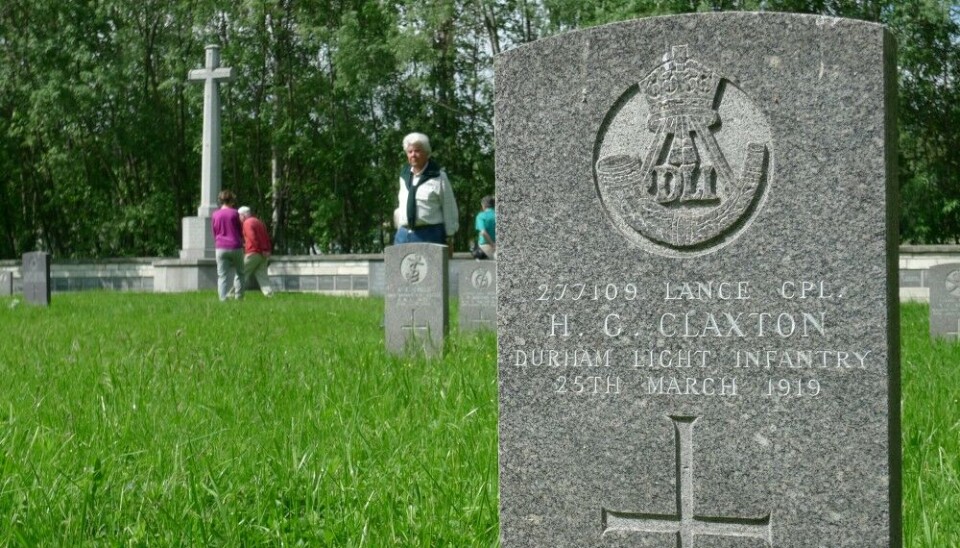
“The traditional Soviet narrative of the allied military intervention in the Arkhangelsk region 1918-1919 fits very well with the threat perceptions and anti-Western discourse that the Kremlin is propagating today, in an effort to legitimize the current Russian warfare in Ukraine,” Myklebost says to the Barents Observer.
But the British forces indeed did bring chemical weapons to Arkhangelsk. Winston Churchill was at the time an eager advocate for the use of the weapons and was instrumental in the shipping of 50,000 devices to the north Russian region. The British forces first applied them on 27 August 1919, targeting the village of Emtsa, 120 miles south of Arkhangelsk. Bolshevik soldiers were seen fleeing in panic as the green chemical gas drifted towards them, the Guardian reports in a story about the war.
The North Russia intervention in Arkhangelsk and Murmansk started in March 1918 and was initially a part of allied forces’ fighting in the 1WW. However, it soon developed into a fight against Bolshevik red forces in the Russian Civil War. The movement was ultimately defeated and the last allied forces left Northern Russia in October 1919.















